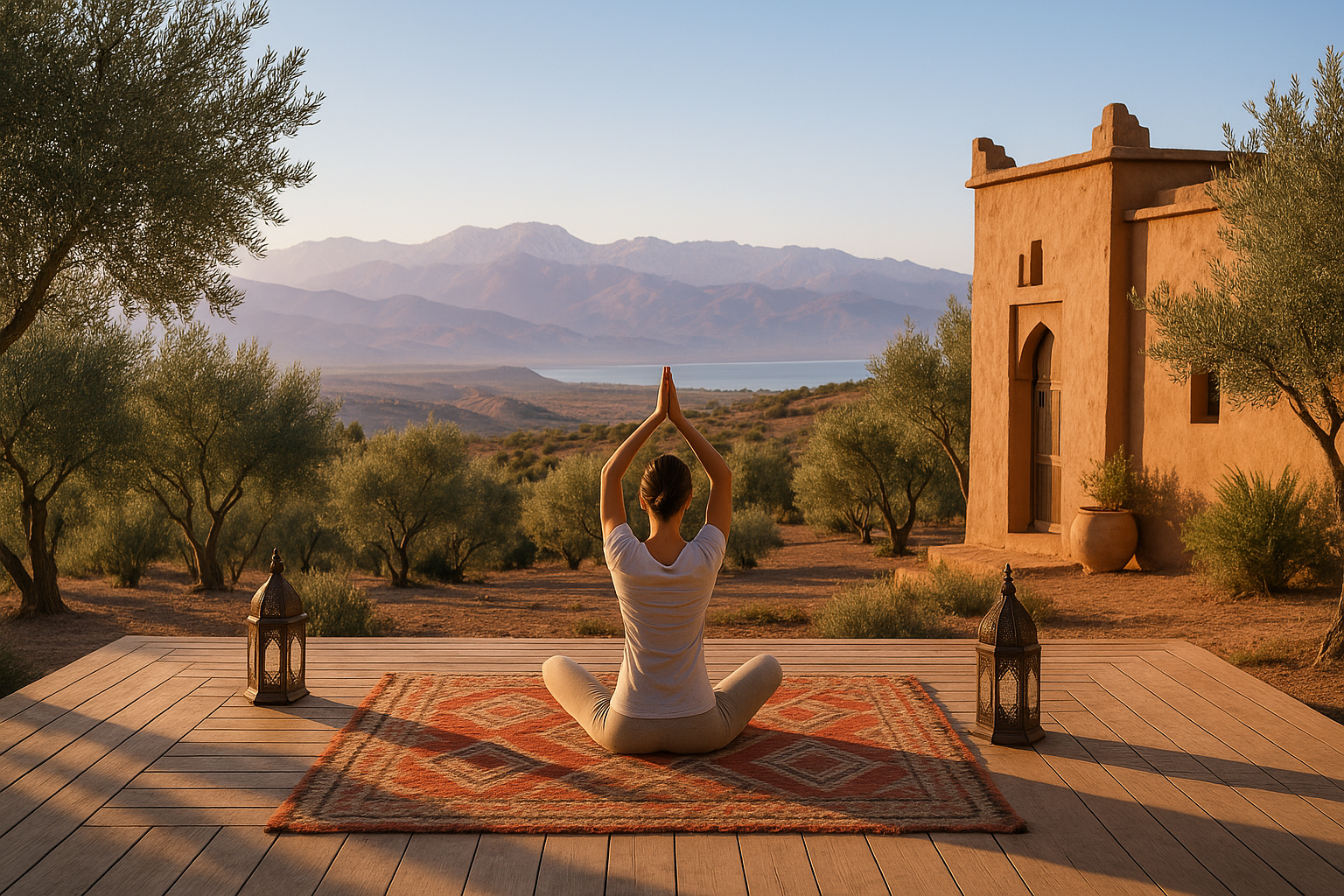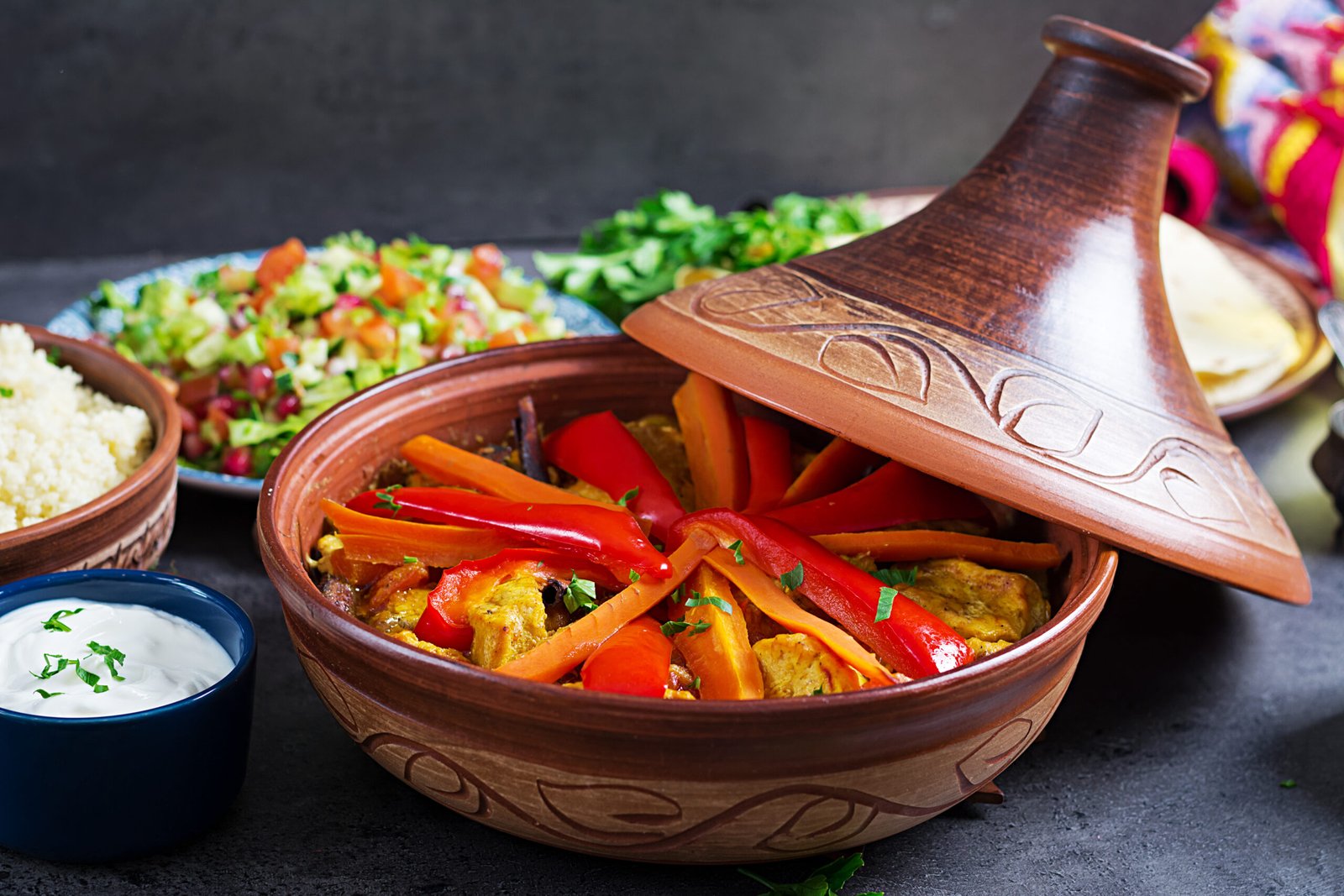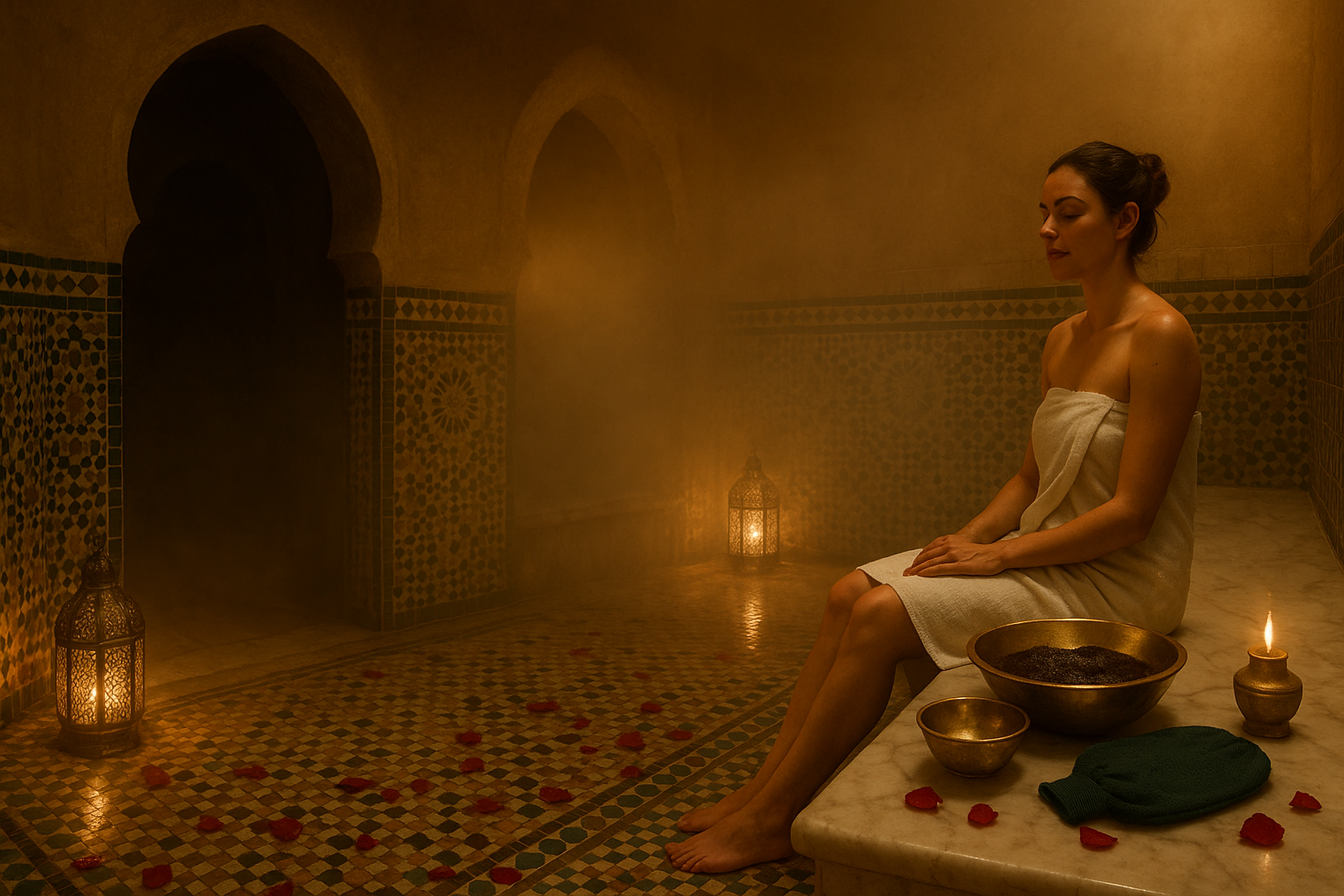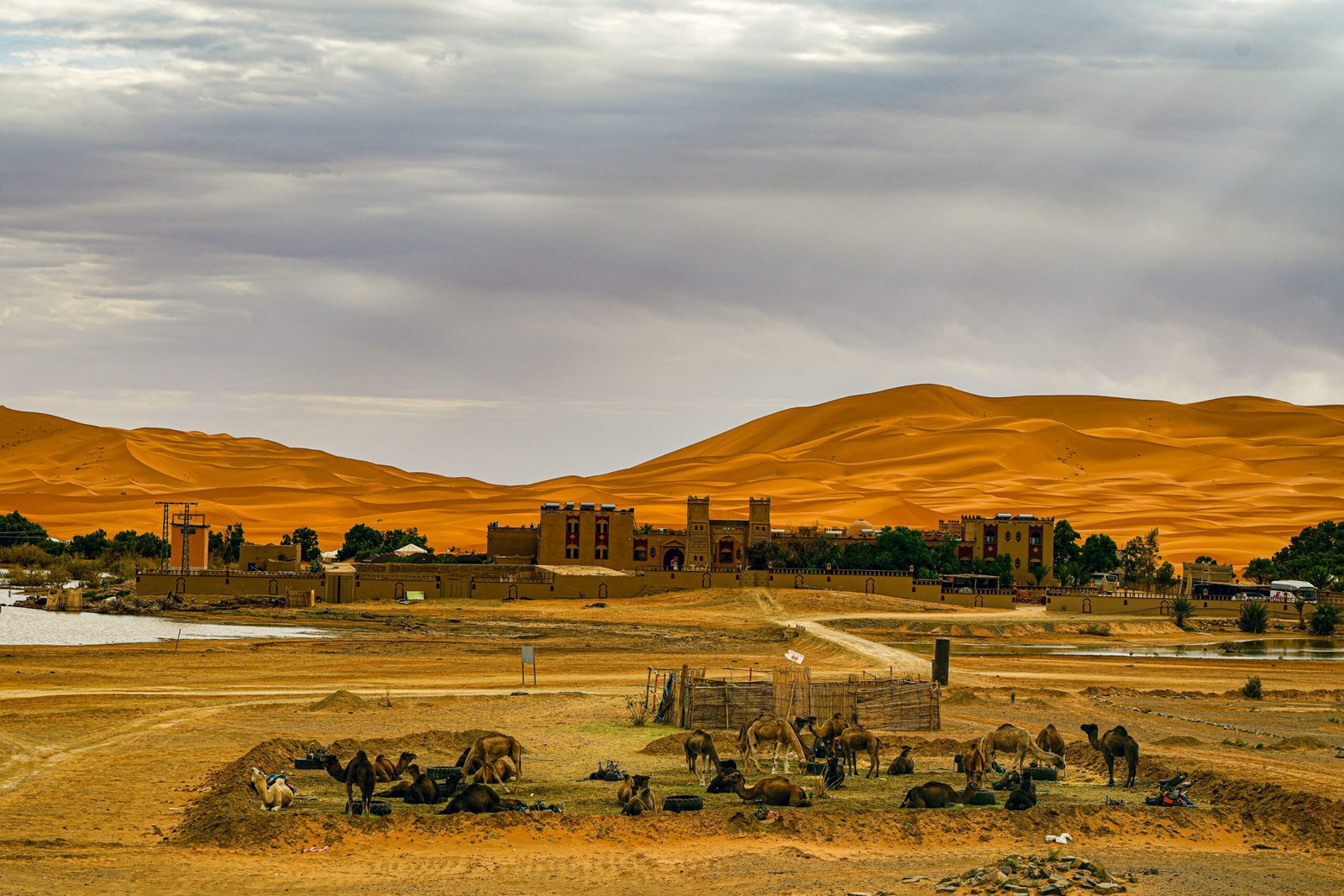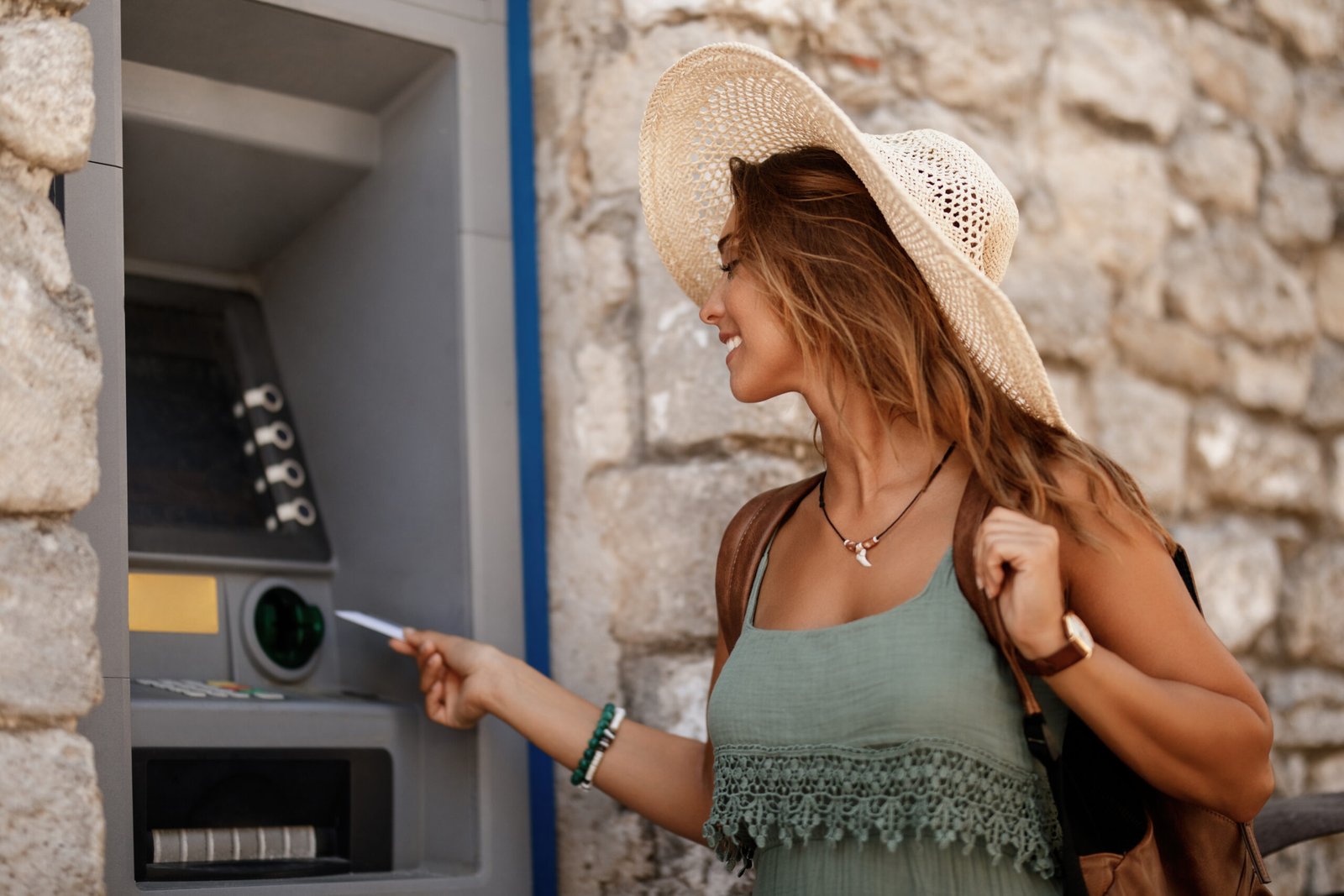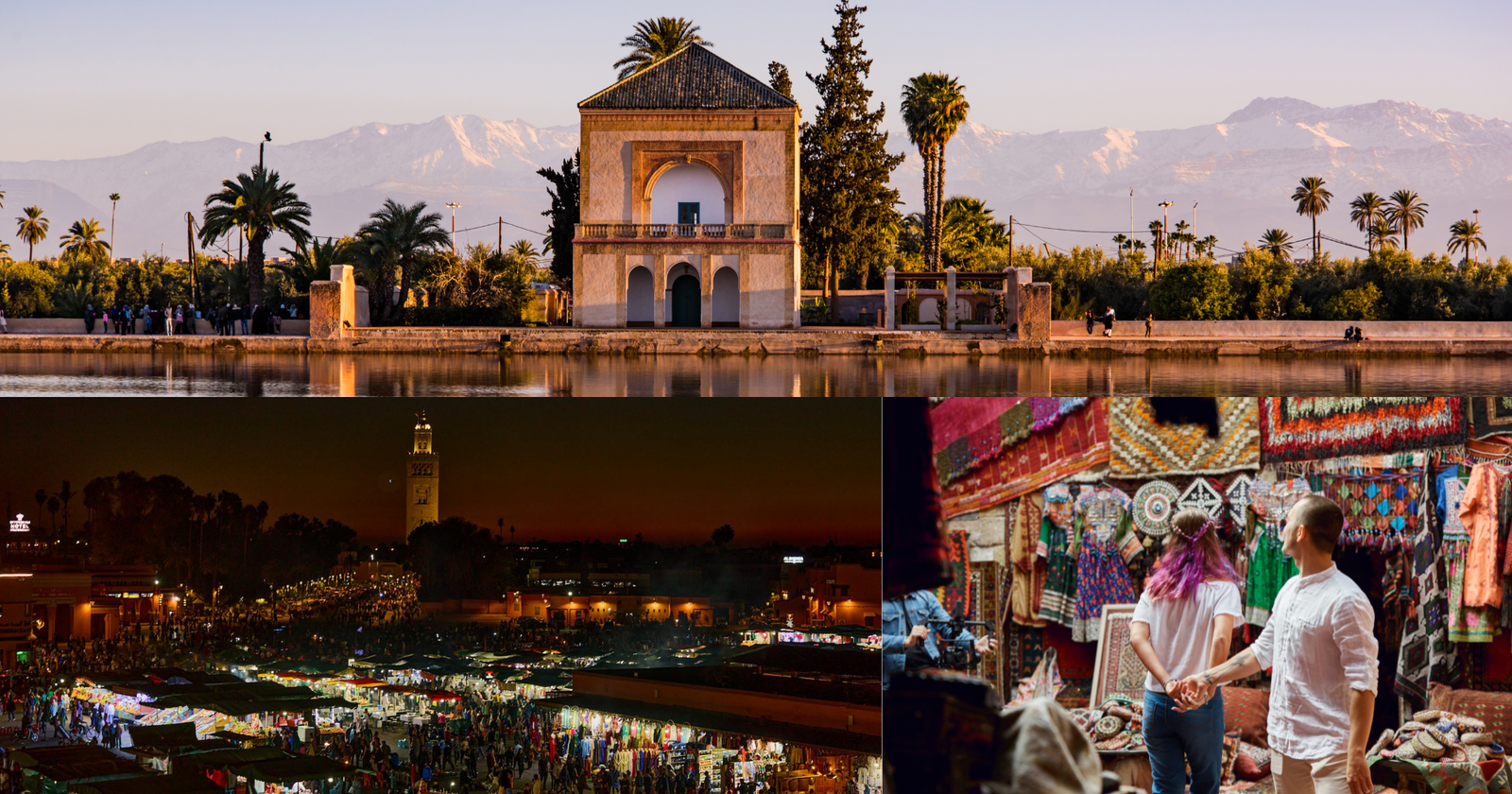When you enter the souks of Marrakech, you’re thrown into a world of colors, textures, and smells. Over 2,000 vendors sell everything from handmade crafts to exotic spices. These ancient markets are a treasure trove for any traveler.
As you wander through the narrow alleys, you’ll find unique souvenirs and experience the local culture. The souks are a key part of any Marrakech shopping guide. They offer a sensory experience that will enchant you and leave you wanting more.
Whether you’re a seasoned shopper or just there to enjoy the atmosphere, Marrakech’s marketplaces have something for everyone. Get ready to haggle, explore, and be mesmerized by the sights and sounds of these incredible souks.
Introduction to Marrakech’s Vibrant Shopping Scene
Marrakech’s souks are the city’s heart, providing a shopping experience that’s both thrilling and memorable. Walking through the busy alleys, you’re surrounded by bright colors, enticing smells, and the sounds that make Marrakech’s shopping areas unique.
The word “souk” means a marketplace, but in Marrakech, it’s more. It’s a mix of culture, history, and commerce that’s special to this Moroccan city. Exploring the souks, you’ll find everything from traditional crafts to local spices, each with its own story of Marrakech’s heritage.
Shopping in Marrakech is more than buying souvenirs. It’s about connecting with the local culture and seeing how these markets are part of everyday life. The souks are where people gather to chat, share stories, and do business, showing Marrakech’s true spirit.
As you explore Marrakech’s shopping scene, you’ll see each souk specializes in something different. You can find everything from textiles and leather to spices and jewelry. This shows the variety of Marrakech’s shopping and its importance as a trade center in the area.
Overview of Marrakech’s Renowned Souks
Stepping into Marrakech’s souks is like entering a world full of colors, sounds, and smells. It’s a place where old crafts and new items live together. This lively shopping scene is a must-see for anyone visiting Marrakech.
What are Souks?
Souks are traditional markets that have been key to Marrakech’s commerce for centuries. They’re more than places to shop; they’re where locals meet and do business. You can find everything from spices and fabrics to jewelry and crafts.
The History Behind Marrakech’s Souks
The souks of Marrakech have a long history, starting in the 11th century. Back then, merchants came through grand gates to trade. Over time, the souks have been shaped by Arab, Berber, and French cultures. This mix is seen in the souks’ goods and buildings.
Key Historical Facts About Marrakech’s Souks:
| Period | Event | Impact on Souks |
|---|---|---|
| 11th Century | Merchants begin trading in Marrakech | Establishment of the souks as major trading centers |
| 16th Century | Influence of Saadi Dynasty | Introduction of new architectural styles and trade goods |
| 20th Century | French Protectorate | Modernization of the souks and introduction of new products |
The souks are vital to Marrakech’s economy and culture. They offer a unique shopping experience. You’ll find amazing deals on everything from handmade crafts to fragrant spices.
Top Souks to Explore in Marrakech
As you wander through Marrakech’s lively streets, you’ll find many souks. Each souk has its own special charm. Shopping here is not just about buying things; it’s a journey.
Souk Semmarine: The Main Thoroughfare
Souk Semmarine is Marrakech’s main souk. It’s a wide, covered market street near Jemaa el-Fna. Here, you can find everything from clothes and accessories to home decor and souvenirs.
Key Highlights of Souk Semmarine:
- Variety of goods, including traditional clothing and modern accessories
- Opportunities to haggle and negotiate prices
- A vibrant atmosphere that encapsulates the essence of Marrakech
Souk El Attarine: A Spice Lover’s Paradise
Souk El Attarine is a feast for your senses. It’s near the medina’s heart, famous for spices, herbs, and oils. You can find saffron, cumin, rosewater, and more.
| Spice/Herb | Usage | Price Range |
|---|---|---|
| Saffron | Cooking, traditional medicine | $5-$15 per gram |
| Cumin | Cooking, spice blends | $2-$5 per 100g |
| Rosewater | Cosmetics, culinary delights | $3-$8 per 100ml |
Souk Chouari: Handcrafted Goods and Carpentry
Souk Chouari is famous for its handcrafted items, like woodwork and carpentry. It’s a great place for unique souvenirs, like wooden boxes and Moroccan furniture.
Tips for Shopping in Souk Chouari:
- Take your time to explore the various stalls and admire the craftsmanship.
- Be prepared to haggle; it’s part of the shopping experience.
- Look for authentic, handmade items that reflect Moroccan culture.
Exploring these souks will help you understand Marrakech’s culture and shopping traditions. Whether you’re after spices, handicrafts, or a memorable experience, Marrakech’s souks have it all.
Unique Souvenirs to Look for When Shopping
Exploring the souks of Marrakech reveals a world of unique souvenirs. These items showcase the city’s rich cultural heritage. You’ll find traditional and modern pieces perfect for keepsakes or gifts.
Traditional Moroccan Tiles and Pottery
Marrakech is famous for its traditional tiles and pottery. These items are not just decorative. They also highlight the country’s long history of craftsmanship. You’ll see tiles in many colors and patterns, often with geometric or floral designs.
Tips for Buying Tiles and Pottery:
- Look for authentic, handmade pieces.
- Check the quality of the glaze and craftsmanship.
- Consider the size and weight for transportation.
Authentic Leather Goods and Accessories
Marrakech is known for its top-quality leather goods. You can find bags, wallets, and belts here. The city’s artisans are experts in leatherwork, making items that are both durable and stylish.
| Type of Leather Goods | Description | Price Range |
|---|---|---|
| Leather Bags | Handcrafted bags in various styles and sizes. | $20-$100 |
| Leather Wallets | High-quality wallets with detailed designs. | $15-$50 |
| Leather Belts | Durable belts with both traditional and modern designs. | $10-$30 |
Exquisite Berber Jewelry
Berber jewelry is a key part of Moroccan culture. It’s known for its detailed designs and deep meanings. You’ll find silver necklaces and colorful beadwork, each with its own story.
When buying Berber jewelry, look for authentic pieces that show traditional craftsmanship.
By focusing on these souvenirs, you can make your Marrakech shopping trip even better. You’ll take home unique bargains that show off the city’s lively culture.
Bargaining Tips for a Successful Shopping Experience
Exploring Marrakech’s souks shows that bargaining is more than just finding a price. It’s about connecting with the vendor. Bargaining is expected and encouraged in Marrakech’s marketplaces. Knowing the local culture is key to a great shopping experience.
To be a pro in the souks, you must learn to negotiate well. Be respectful, friendly, and ready to leave if the deal isn’t good. Building rapport with the vendor helps get a better price. So, take time to chat and find common interests.
Understanding the Art of Negotiation
Negotiation is a dance between buyer and seller. It’s important to know the rules. Start by researching the item’s market value. Be ready to make a counteroffer. Don’t be afraid to walk away if the price isn’t right – it’s a strong negotiating tool.
- Research the market value of the item
- Make a counteroffer
- Be prepared to walk away
When to Walk Away to Get Better Deals
Knowing when to walk away is key in bargaining. If the vendor won’t meet your price, it’s time to politely decline the offer and leave. Often, the vendor will come back with a better deal. This method works well, but be honest in your intent to leave – don’t bluff!
By mastering negotiation and knowing when to leave, you’ll have a great time shopping in Marrakech’s souks. Stay friendly, be respectful, and enjoy the journey – it’s all part of the Marrakech shopping adventure!
Best Times to Shop in Marrakech
To get the most out of your Marrakech shopping experience, knowing when to go is key. Marrakech’s markets are lively, but with some planning, you can shop like a pro.
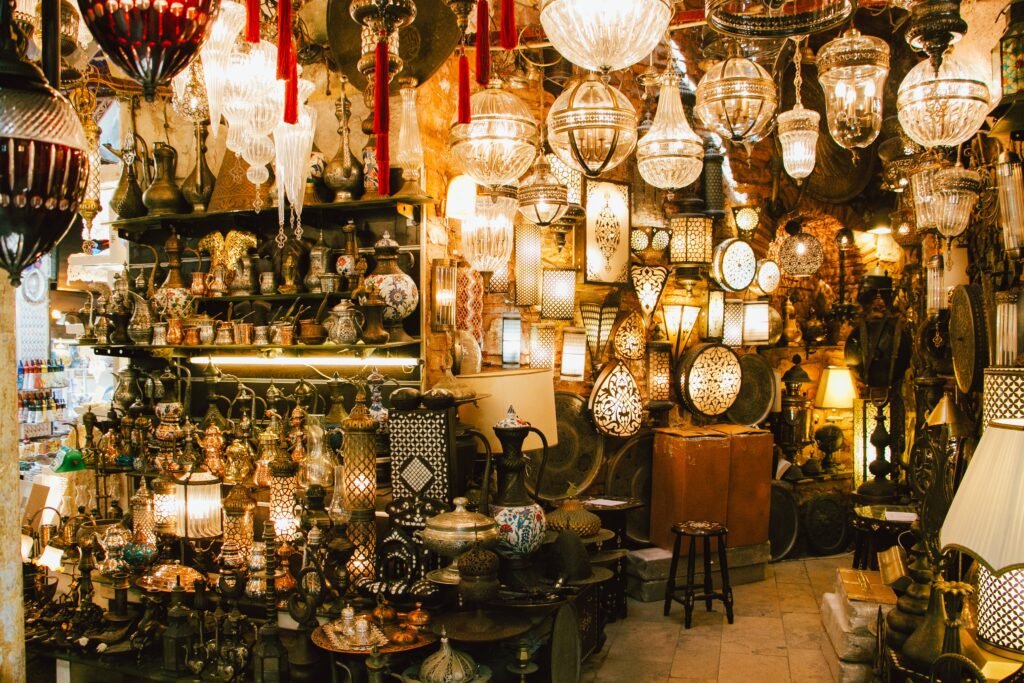
Morning vs. Evening: What’s Best?
The best times to hit the Marrakech souks are morning or late afternoon. Mornings are less busy, letting you see everything without the rush. You can take your time to check out spices, handicrafts, and more, and bargain with ease.
Evenings are lively, with the souks lit up beautifully. But, be ready for more people and vendors who might be more pushy. For a calmer, more authentic vibe, mornings are the way to go.
Seasonal Shopping Considerations
Marrakech welcomes visitors all year, but the seasonal changes affect shopping. Peak season (October to April) means more people, weekends, and holidays. For fewer crowds, try the shoulder season (April to May or September to October).
Also, keep an eye out for local holidays and festivals like Eid or Ramadan. These times can make the souks busier or have different hours. Planning around these can enhance your Marrakech shopping districts journey.
By choosing the right time and considering the seasons, your Marrakech shopping trip can be both enjoyable and stress-free.
Exploring Non-Souk Shopping Opportunities
Marrakech is more than just souks. It has a wide range of shopping spots for everyone. If you want to see more than the traditional souks, Marrakech has plenty to offer.
Art Galleries and Boutiques in Gueliz
Gueliz is where you find modern shopping. It’s filled with art galleries and boutiques. You can find stylish clothes and accessories here. It’s a great place to find unique items that show off Marrakech’s modern side.
In Gueliz, you can see local artists’ work. It’s a chance to buy authentic, locally-made art. This adds to Marrakech’s cultural richness.
Modern Shopping Malls: A Different Experience
Marrakech also has modern shopping malls. They have international brands, places to eat, and fun activities. These malls are cool and air-conditioned, a nice break from Marrakech’s busy streets.
Places like Marrakech Plaza and Al Massira are great spots. They offer shopping, dining, and fun. They’re perfect for families or anyone who wants a more familiar shopping experience.
Cultural Etiquette When Shopping
Exploring Marrakech’s souks requires knowing the local customs. These markets are more than places to buy things. They are cultural centers where tradition and hospitality meet.
Being aware of local customs is key for a good shopping trip. It helps you avoid misunderstandings and build good relationships with vendors.
Respecting Local Customs
Marrakech values modesty and respect. Dressing conservatively shows respect and helps you blend in. It also keeps you out of the spotlight.
Here are some customs to remember:
- Dress modestly, covering your shoulders and knees.
- Remove your shoes when entering a mosque or a private home.
- Use your right hand when giving or receiving something, as the left hand is considered unclean.
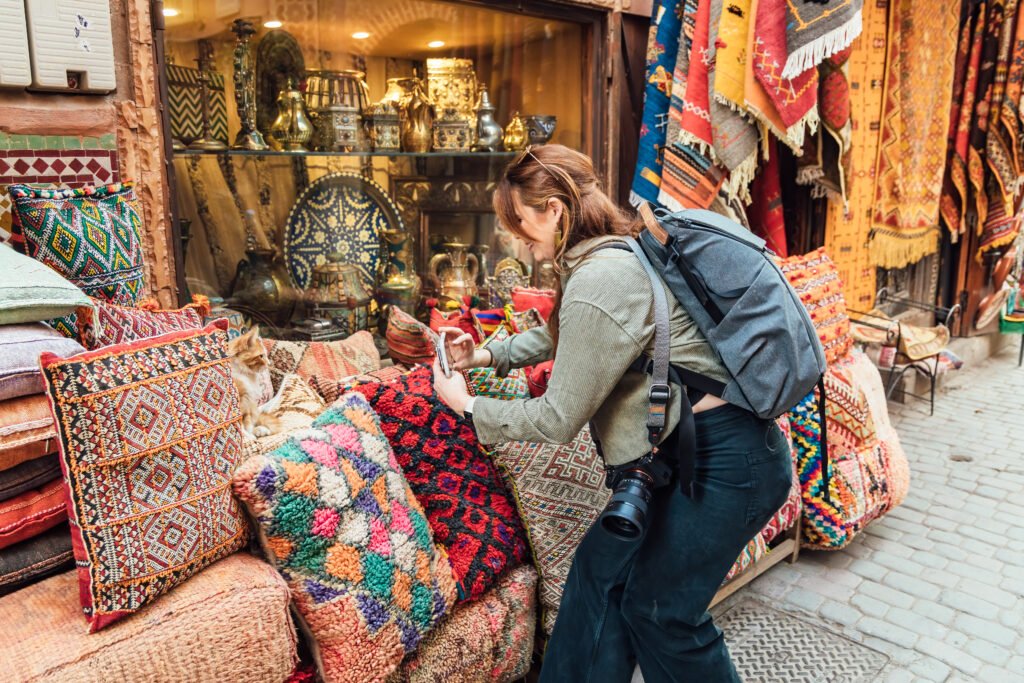
Tips for Interacting with Vendors
Talking to vendors in Marrakech’s souks can be fun. Here are some tips to make your interactions better:
| Tip | Description |
|---|---|
| Greet vendors warmly | A friendly greeting can go a long way in establishing a positive rapport. |
| Be respectful and polite | Using polite language and showing respect can significantly enhance your interaction. |
| Be prepared to haggle | Haggling is a part of the shopping experience in Marrakech; be prepared to negotiate prices. |
Respecting local customs and traditions makes your shopping trip in Marrakech’s souks better. It ensures a more enjoyable and enriching experience.
Culinary Shopping: Ingredients for Moroccan Cuisine
Moroccan cooking is all about rich spice blends and traditional tools. You can find these in Marrakech’s souks. These markets are full of flavors that make Moroccan cuisine special. You’ll find everything from spices to cooking utensils in Marrakech’s souks, making it a culinary shopping experience unlike any other.
Must-Have Spices and Condiments
Moroccan food is famous for its complex spice mixes, like Ras el hanout. This mix has over 30 spices, adding a unique flavor to dishes. When you’re in Marrakech, make sure to get these spices and condiments. They’ll help you bring Moroccan flavors into your cooking.
- Cumin and corriander: These spices are key in Moroccan dishes, adding warmth and depth.
- Turmeric: Known for its flavor and bright color, turmeric is a common ingredient in Moroccan cooking.
- Preserved lemons: These tangy, salty condiments add flavor to tagines and salads.
Traditional Cooking Tools to Bring Home
Marrakech’s souks are also great for finding traditional Moroccan cooking tools. These tools are not just useful; they also make great souvenirs. They help you cook authentic Moroccan dishes.
Some essential tools include:
- Tagines: The iconic clay pot with a conical lid is key for slow-cooking stews.
- Mortars and pestles: These are used for grinding spices and making sauces, essential in any Moroccan kitchen.
- Moroccan tea sets: These beautifully crafted sets are not just for tea; they’re part of the Moroccan tea experience.
Shopping in Marrakech’s souks for food is more than just buying items. It’s about diving into the local culture and bringing a piece of Morocco home. Whether you’re an experienced chef or just starting out, the ingredients and tools from Marrakech will make your Marrakech shopping experience unforgettable and inspire your cooking.
Conclusion: Making the Most of Your Shopping Adventure in Marrakech
Exploring Marrakech’s souks is a unique and unforgettable experience. The city’s rich history and diverse goods make it a paradise for shoppers. You’ll find everything from traditional crafts to modern items.
Start by visiting top souks like Souk Semmarine and Souk El Attarine. Bargaining is key to getting good deals. Knowing when to walk away is important. Don’t forget to check out art galleries and malls for a different shopping experience.
Embracing the local culture and customs will make your shopping trip even better. You’ll find amazing souvenirs and create lasting memories. This guide has prepared you to find Moroccan tiles, leather goods, and Berber jewelry like a local.

